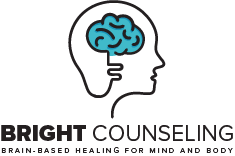4 Simple Ways to Relieve Stress & Feel Better
1. Dedicate Time to Self-Care
The self-care I’m referring to is the kind that promotes self-love and acceptance of yourself as having worth and value. One way to do this is to practice mindful breathing where you’d need to set aside about 5 minutes and begin by taking even, slow breaths while drawing awareness to the emotions and any discomfort you are experiencing in your body. Allow yourself to just notice the sensations and emotions without making judgments or interpretations (i.e., “I shouldn’t feel this way”).
Taking time to slow down the day and ground yourself into the present will help lower stress and anxiety and help clear your mind to improve brain function.
2. Practice Self-Validation
Are you your worst critic?
With increased expectations to “be the best,” it’s easy to get caught up in negative self-talk that lowers self-esteem and confidence. Using positive self-talk including, “I’m doing the best I can with what I’m faced with right now” helps to reduce pressure from these expectations.
Also, making sure you have realistic goals and expectations is important so you aren’t setting yourself up for failure or disappointment.
Another way to self-validate is identifying a past experience where you rose above a challenge and remembering how this made you feel.
3. Focus on the Positive
Even if a situation feels catastrophic, I’d argue that there is something you can identify that is positive or something you can learn or gain from the experience.
Dwelling on the negative in situations increases stress and anxiety and sets you up to view following experiences negatively. Consciously putting effort into finding the positive in a situation is essential, at least until finding the positive becomes your new automatic approach.
4. Apply Radical Acceptance
How often do you find yourself feeling responsible to fix something you don’t have any control over? What about trying to change something (or someone) that you don’t have control over?
These types of situations are automatic set-ups for stress and anxiety. It’s important to take a step back and truly assess whether or not what you are stressing over is within your control to change. And if your answer is “no,” that’s where radical acceptance is needed. Radical acceptance is recognizing what you can’t control, accepting those things as they are and letting go of the stress, worry and blame about that situation.
For example, say you caught the flu, and you ended up sick at home. You may be frustrated because you have so many things to get done, but you can’t change the fact that you’re sick and feel terrible. Allow yourself to feel frustrated and unhappy, then let go and allow your body (and mind) time to rest and heal without worrying.
